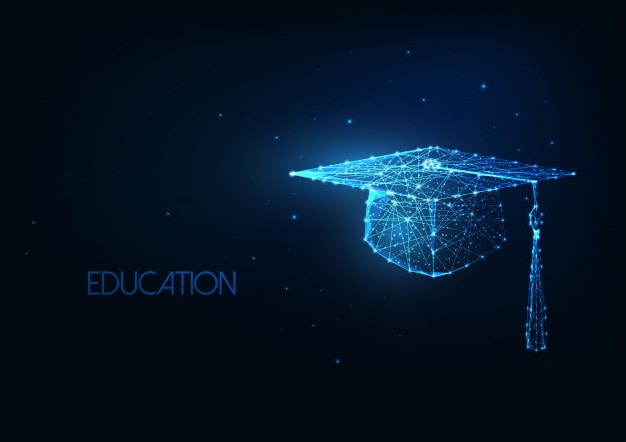The business model of education revolves around different processes of facilitating learning or procuring skills, knowledge, beliefs, habits, or values. Education is indeed one of the basic needs of man. There is hardly any chance of earning a living without proper education.
A person is known by how educated he/she is. There are various stages of education. Starting from kids’ playschools, there are colleges and universities around the world. Every region has its education system, which has the essence of that region.
These days, there is more focus on technical education and in-depth knowledge of the subjects you are learning.
Hence, education systems across most of the countries have evolved over the past few years. It has led to the emergence of educational institutes not just as a service but also as a business.
This post will take you deep into the Education Business Models and guide you about the key traits of successful education-related business models. So, let us get started-
Introduction
Education is often held accountable for the success of students. The education systems aim at imparting good quality education to one and all.
Students are those who are seeking answers. They look at the educational systems with hope and believe that they will find those answers. That is why the business model of education should be drafted to cater to these needs of students.about:blank
Moral Value System associated with the Business Model of Education

Every business runs of profit. But, the motive behind the business of education is to impart pure and unbiased knowledge.
The customers of this system are the students or learners. Their satisfaction is the soul of this business model. There is no business that is intrinsically good or bad. The profits earned from these businesses determine their nature.
In an educational system, the profits are in two primary forms. One is the financial profit gained by the institution, and the other is the educational insights gained by the students.
If both of these profits are achieved in equal measure, both the parties are in a win-win situation. It helps the education business reach a neutral end.
Need for a Good Business Model of Education
In the initial school years, the students take education for teaching fundamental moral values. The education they receive is aimed at making them better as human beings.
High school education is aimed at professional expertise. Students learn the skills which can help them earn a living and be the breadwinners for their families. The technological and professional trends keep on changing. Concerning technology, there are constant changes and upgrades. These changes demand changes in the business model, as well.
The current business model should be efficient. The education imparted through this model should help the students sustain themselves in the professional world. The students gain technical competence as well as the ability to mitigate the risks of vulnerability.
Best Ways of Money-making via Trendy Educational Business Models
As mentioned above, every business wants to maximize its profits. They want the revenues they earn increase manifolds. So, here are some ways that can be used by an educational institution to make money.
1. Live Classes
There can be nothing as good as actual teaching. A teacher dedicating his/her precious time for her students and empowering them in almost every aspect of life is one of the greatest gifts for the pupils.
That is why live classes are hugely popular and form the surest way of earning money. Some institutions give face-to-face learning experiences to the students. Here the teacher can understand the grasping power of the student and amend the lectures accordingly.
Also, in these times of the Covid19 pandemic, the live classes can be conducted on video calling platforms like Zoom and Google Meet.
2. Online Courses
Many people confuse between the live classes on video calling platforms and online courses. They misinterpret them to be the same. However, there is a small difference between them. The online courses are packages of audios, videos, and textual chapters that can be used by the student according to his/her convenience.
These courses are mostly self-paced. But, some of them do come with a deadline. The students need to complete the course within a specific amount of time. Then, they can get a certificate of completion.
3. Starting Institutions
Many education providers wish to start an institution like a school or a college. It encompasses a more extensive client base.
In today’s times, the institutions are also of the form of coaching classes or tuitions. They need less infrastructure and yet get all the due accountability and respect. The institutions get recognition from the government, and they also receive grants and funds for imparting knowledge to the students.
4. Consulting Services
Education is not just classroom teaching. It comprises many aspects of teaching, including consulting services.
Consulting is the process of counseling people and giving them appropriate solutions. We all need guidance at some of the other points in life. So, consulting is always in demand. There are various forms of consultation services provided by multiple educators. Some of them are given below-
- Curriculum Design
- Research Work
- Communication Skills
- Learning Experience Design
5. Professional Services
Apart from consulting services, there are professional services which are offered by some educational institutions.
These services come after the inception of consultation services. We can define the professional services as the services which fulfill the needs of the client. Some of the most popular professional services are given below.
- Research
- Writing
- Translation
- Curriculum Development
Challenges While Planning a Business Model of Education

The business model for education should be adequately planned, considering many aspects that are important in education. However, there are some challenges which one faces while designing these models.
In the private education sector, there is a system for rewarding productivity. It enhances the efficiency and creativity of the people working in that association.
However, if people start working for rewards more than working towards excellence, it poses a threat to the business model. The vicious cycle of expectations begins there and meets no end.
Technical Flaws as Threats to the Business Model of Education
Along with the flaws in the moral and value system of the business model, there could be flaws in the technical aspects as well.
One of the most impactful technical flaws is the inefficiency of the teachers. Sometimes, the teachers themselves do not know the subjects they are teaching thoroughly. Also, the infrastructure of the classrooms in the case of institutions plays a vital role. The maintenance of these structures is an integral part of the business model.
Innovations in the Education
We all know and believe that change is the only constant thing in the world. Hence, innovation picks up the lion’s share in making a sustainable business model. Here are a few innovations that you can bring about:
1. Make the Doors Wider
The con of many educational institutions is that they keep the doors narrower. They don’t expand enough to provide newer opportunities to their students.
It can be eradicated by making the sea opportunities available for the students as well as the teachers. The new domains of education can be made available by making slight changes in the business models.
It will give the students more exposure to the newer world. It will encompass the learners from different streams and engulf them in the education system.
2. Earning and Learning
Many people in the world cannot afford quality education. The costs of education have seen a tremendous rise in the past few years. Also, some people like to learn using their own hard-earned money.
Here, the concept of earning while learning comes into the picture. The business model of any education system should allow the students to take up internships and part-time jobs.
It will empower the students to learn on their own. This policy will get more students into the system of education. There will be lesser drop-outs, and lesser people will fall out of the educational system.
3. Employer as Payer
Many times students do not know what exactly to go for, whether to take up a job or stick to traditional higher education. Here, they can undertake a job or an internship whose profile they like and find suitable.
If they have the relevant skills, they will be approached by the employer.
The employer will take care that they complete the education they require. He/she will pay the fees for the educational course or program. It will facilitate career-specific training and promise better employment.
How to Make a More Sustainable Business Model of Education?

The essential form of stability that any educational institution needs is financial stability. If they get proper funding, they can improve their ways of teaching.
If they do not get enough money, they will not want to explore other avenues and streams of education. In the education system, it is essential to stay relevant and keep on changing the business model according to the need of the market.
They should take proper and reasonable fees from the students and then invest these funds in the correct manner, which will get the maximum financial benefits.
How to Translate a Small Scale School to a Larger Educational Institution?
There are many small scale schools and educators in the world.
Sometimes, what they lack to translate themselves into larger educational institutions is a proper business model and vision for the next few years. They should study the market well and recruit only those professionals who can add value to their already existing system.
Final Thoughts!
Starting an education institution is not a cakewalk. You need proper resources and a well-drafted plan. For that, you have some experts on board who can guide you through that.
In addition to that, the tips mentioned above will help you design the best business model for your educational institution.
Are you also thinking of starting an education-related business? Then feel free to share with us about your expertise and niche so that we can suggest the right business model of education for your target audiences.
